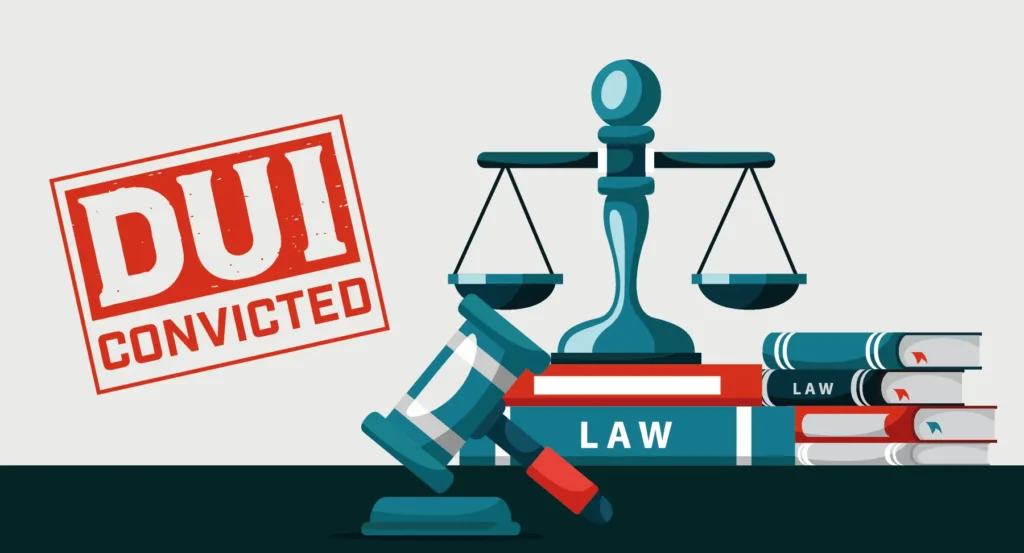A momentary lapse in judgment can sometimes carry consequences that follow you for years. For many people, a drunk driving charge doesn’t just affect their license—it impacts their livelihood. If you’re facing or recovering from one, understanding the DUI conviction effects on employment is not just helpful—it’s essential. It can determine whether you’re passed over for a job, denied a promotion, or even let go entirely.
In this detailed guide titled DUI Conviction and Its Impact on Your Career, we’ll unpack how employers view DUI records, how background checks work, and what you can do to minimize the damage to your professional reputation. We’ll also touch on howDUI lawplays a role in shaping what employers are legally allowed to consider during hiring. We’ll include real-life examples and explore different industries to show just how wide the ripple effect can be. Whether you’re a nurse, teacher, tech worker, or truck driver, this is your go-to resource for navigating life after a DUI. Because with the right knowledge and preparation, you can still move forward successfully.

Understanding DUI Conviction Effects on Employment
It’s More Than Just a Mark on Your Record
The moment a DUI conviction becomes part of your record, it has the potential to follow you into the workplace. Some people are surprised to learn that even a first-time DUI—especially a misdemeanor—can still complicate hiring, promotions, and professional licensing. It may show up in ways you never expected, especially in industries that require background clearance.
Why? Because many employers considerDWI conviction records as red flags for risk, responsibility, and liability. To them, it’s not just about the crime—it’s about what it suggests regarding your judgment and reliability.
What makes the DUI conviction effects on employment so widespread is that it’s often not just about legality—it’s about perception. Even if you’ve done the work to rebuild, some employers still hesitate when they see that mark on your record.
Real-Life Story: Lisa’s Lost Promotion
Lisa, a 34-year-old marketing director in Dallas, was on track for a promotion to VP. One night after a holiday party, she was pulled over and arrested for DUI. She wasn’t fired—but when background checks were run for internal candidates, her recent conviction cost her the job.
The company never said it outright, but she was told they “had concerns about leadership optics.”
Lisa’s story is a reminder that even when your current job is safe, a DUI can stall or end advancement in unexpected ways.
Employment Background Checks: What Shows Up?
A DUI Isn’t Invisible
When employers run background checks, a DUI conviction typically appears under criminal history. It may be flagged as:
- Misdemeanor DUI
- Felony DUI (if severe, repeated, or involving injury)
- Related charges (e.g., reckless driving, refusal to test)
Most background checks go back at least seven years, although some employers (especially in finance or government) go further.
Even if your DUI didn’t result in jail time, probation or license suspension will be noted. And unless your record has been expunged or sealed, it’s considered public.
This is why the DUI conviction effects on employment don’t just apply during hiring—they follow you for years.
How Employers React to DUI Convictions
It Depends on the Job, Industry, and Culture
Different industries have very different policies when it comes to DUI convictions. Here’s how some common fields typically respond:
Healthcare
- Many healthcare employers require clean records due to patient safety concerns
- A DUI could jeopardize nursing licenses or medical board approval
- Mandatory reporting is often required
Education
- Teachers and school staff are often held to stricter standards
- A DUI may trigger a review by the state’s education department
- Even private schools may terminate employment for reputational reasons
Transportation
- Commercial drivers (CDL holders) face the most severe fallout
- A DUI can lead to immediate suspension or permanent disqualification
- Insurance companies may refuse to cover drivers with DUIs

Finance and Law
- White-collar industries weigh professionalism and public trust
- A DUI might impact bar admission or securities licenses
- Background checks are often recurring, not one-time
So yes, the DUI conviction effects on employment depend heavily on what you do and where you do it—but the risk is almost always real.
Applying for a Job After a DUI Conviction
Should You Disclose It?
Many job applications include questions like:
“Have you ever been convicted of a crime?”
You must answer truthfully—unless your DUI was expunged, sealed, or falls outside the reporting window (depending on your state).
If you’re asked during the application process, it’s better to be upfront but strategic. Here’s how to phrase it:
“Yes, I had a misdemeanor DUI in [year]. I took full responsibility, completed all requirements, and have since made significant changes to my lifestyle.”
Employers don’t just look at the mistake—they look at how you’ve handled it.
When it comes to DUI conviction effects on employment, honesty—paired with accountability—can go a long way.
Licensing and Certification Challenges
It’s Not Just Employers You Need to Worry About
In some professions, state licensing boards can block or revoke your credentials after a DUI. These include:
- Nurses and doctors
- Lawyers
- Real estate agents
- Commercial drivers
- Childcare providers
- Security guards
You may be required to report your conviction to the board. Failing to do so can result in harsher penalties than the DUI itself.
In many cases, boards will investigate the context of the offense, any rehabilitation efforts, and how recent the incident was. But in highly regulated industries, a DUI can delay or derail your entire career path.
The DUI conviction effects on employment extend well beyond hiring—they can touch every part of your professional standing.
Real-Life Story: Devin’s Second Chance
Devin was a 40-year-old IT professional with a clean record—until one night he blew a 0.09 at a checkpoint. He was arrested, pled no contest, and completed his probation.
He feared he’d lose his job, but his employer valued transparency. Devin shared what happened, showed court documents proving he complied with everything, and even enrolled in a local rehab program voluntarily.
Not only did he keep his job, but he was later promoted. Devin’s story proves that how you respond can sometimes matter more than the mistake itself.
Can You Get a DUI Expunged in Texas?
A Path to a Cleaner Record
In Texas, expungement for DUI is rare but not impossible. You might qualify if:
- You were acquitted
- Your case was dismissed
- You successfully completed deferred adjudication (in some cases)
A sealed record (non-disclosure) is more common. It limits who can view your criminal history, especially private employers.
If you’re worried about the long-term DUI conviction effects on employment, talk to an attorney about sealing or expunging your record. A clean background check could open doors that currently feel shut.

Employer Insurance and Liability Concerns
Why Some Employers Won’t Take the Risk
Even if an employer is willing to overlook a DUI, their insurance provider might not. Insurance companies often view individuals with DUI histories as high-risk liabilities, especially in client-facing or operational roles.
Some business insurance policies increase premiums—or refuse coverage altogether—if employees have criminal records related to substance use or driving offenses. This can be a deal-breaker for companies already struggling to manage costs or maintain policy compliance.
For roles that require driving, handling sensitive data, or managing people, the employer may see a DUI as a potential liability that’s not worth the risk. Even if you’re qualified, this behind-the-scenes factor can quietly influence hiring decisions.
This reality shows how DUI conviction effects on employment can hit you from behind the scenes—even if you ace the interview. You may never know the real reason you weren’t hired—but that’s why managing the narrative upfront matters.
How to Rebuild Your Career After a DUI
It’s Not the End—But It Is a Turning Point
The journey doesn’t stop at conviction. Here’s how you can take control and rebuild:
- Complete all legal requirements quickly and thoroughly
- Seek counseling or join recovery programs to show growth
- Update your resume and focus on your skills, not your record
- Consider career coaching or legal help for sealing your record
- Be ready to talk about the DUI honestly—but briefly
Focus on what you’ve done since the DUI. Employers want to see responsibility, growth, and professionalism. Frame your experience as a turning point, not a permanent label.

While DUI conviction effects on employment are real, they don’t have to be forever. With consistent effort and a clear message, many people successfully reclaim their careers.
Final Thoughts: DUI Conviction and Its Impact on Your Career
A DUI doesn’t just touch your criminal record—it can reshape your entire career. From missed opportunities to lost licenses, the DUI conviction effects on employment ripple through every part of your professional life. It’s a wake-up call that can either set you back—or set you on a new, more focused path.
But knowledge is power. By understanding how employers think, what licensing boards require, and how to rebuild after a conviction, you give yourself the best chance at recovery. A strategic approach can turn setbacks into lessons—and sometimes even into second chances.
It’s not about being perfect—it’s about being prepared. Take responsibility, take action, and take control of your future. Your career doesn’t end here. It just needs a different roadmap—and you’re still in the driver’s seat.

